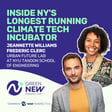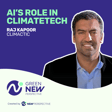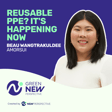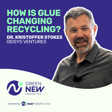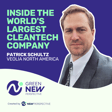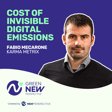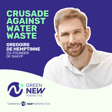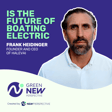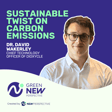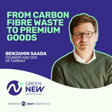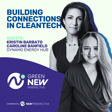
Podcast With EverestLabs: The Future of Recycling - AI and Robotics
In this podcast episode, we're focusing on the transformative role of AI and robotics in revolutionizing the recycling industry. This isn't just about machines taking over traditional tasks; it's a story of how cutting-edge technology is enabling us to tackle one of our planet's most pressing issues - packaging waste.
We'll explore how artificial intelligence and advanced robotics are making recycling processes more efficient, accurate, and cost-effective. We'll look at the challenges the recycling sector faces, from sorting complexities to operational inefficiencies, and how technology offers innovative solutions.
📚 RESOURCES & LINKS
========================
- EverlastLabs Website: https://everestlabs.ai
- EverlastLabs LinkedIn: https://www.linkedin.com/company/everestlabsai/
- EverlastLabs Twitter: https://twitter.com/EverestLabs_ai
Guest: Apurba Pradhan, Head of Product and Marketing at EverestLabs
👉 Interview with Apurba: https://www.npws.net/podcast/future-of-recycling-ai
🌍 SUSTAINABILITY PODCAST CREATED BY NEW PERSPECTIVE
========================
This podcast is proudly sponsored by New Perspective Marketing, a dynamic growth marketing agency in Boston, MA, celebrating 20 years in business. We help sustainably focused B2B organizations grow their brands and scale up revenue. If you or your organization is looking to grow, visit npws.com for more info.
- Host: Dunja Jovanovic
- Executive Producer: Marko Bodiroza
- Creator: Nathan Harris
🎧 SUBSCRIBE TO OUR PODCAST
===========================
- Spotify: https://bit.ly/3PSWIyI
- Apple Podcasts: https://bit.ly/3RvlHte
- Youtube: https://bit.ly/3RDzkXg
- Google Podcasts: http://bit.ly/465gjS5
- Deezer: https://bit.ly/3PvQaof
- Amazon Music: https://bit.ly/3PQlijS
- Zencastr: https://bit.ly/48xt75s
💬 FOLLOW US ON SOCIAL MEDIA
============================
- Instagram: https://www.instagram.com/greennewperspective/
- Twitter: https://twitter.com/gnperspective
- Facebook: https://www.facebook.com/greennewperspective
- LinkedIn: https://www.linkedin.com/showcase/greennewperspective/
- TikTok: https://www.tiktok.com/@greennewperspective
#cleantech #cleantechmarketing #recycling #upcycling

